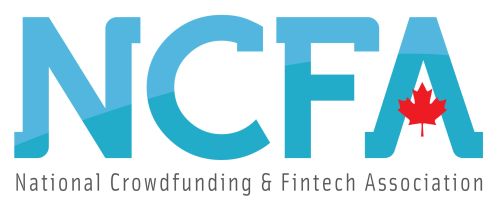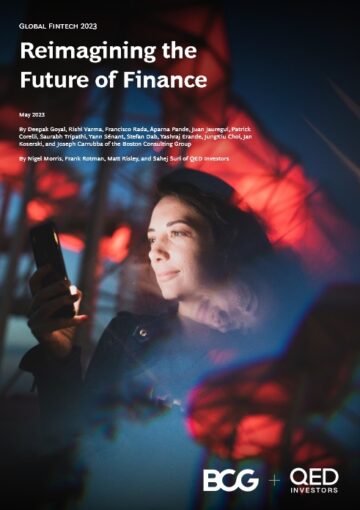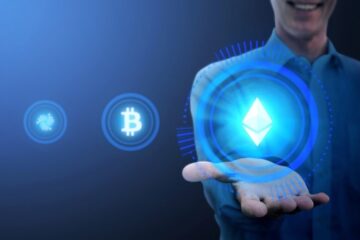Digital Assets | Nov 6, 2023

 Image: Pexels/Tima Miroshnichenko
Image: Pexels/Tima MiroshnichenkoDigital assets, ranging from cryptocurrencies like Bitcoin and Ethereum to non-fungible tokens (NFTs) and central bank digital currencies (CBDCs), are redefining the boundaries of auditing and accounting.
Types of Digital Assets
The digital asset landscape is rich and varied, encompassing a range of assets that leverage blockchain technology for different uses. As we move through 2023, here are some (not exhaustive) of the key types of digital assets that are shaping the financial and technological worlds:
See: UK’s Future Crypto and Stablecoin Regulation
- Cryptocurrencies: These are digital or virtual currencies that use cryptography for security and operate on decentralized networks based on blockchain technology. Examples include Bitcoin (BTC), which is often considered a digital store of value, and Ethereum (ETH), which is used to execute smart contracts.
- Stablecoins: A type of cryptocurrency that aims to peg its market value to an external reference, like the US dollar or gold, to reduce volatility. Examples include Tether (USDT) and USD Coin (USDC).
- Non-Fungible Tokens (NFTs): These are unique digital assets that represent ownership or proof of authenticity of a specific item or piece of content, typically using the Ethereum blockchain. They have been used for digital art, collectibles, and more. An example is the artwork by Beeple, which sold for millions of dollars.
- Central Bank Digital Currencies (CBDCs): These are digital forms of fiat money that are issued and regulated by the central banks of respective countries. They aim to provide a digital alternative to traditional banknotes. While not fully implemented in many countries, several, including China with its Digital Yuan, are in advanced stages of testing.
- Utility Tokens: These tokens provide users with access to a product or service and/or utility within a particular ecosystem. An example is Filecoin, which is used to purchase storage space on a decentralized network.
- Security Tokens: These digital assets derive their value from an external, tradable asset and are subject to federal securities regulations. They represent rights to ownership, dividends, or interest in their issuing entity. An example is the tokenized real estate investments that allow for fractional ownership of property.
- Governance Tokens: These tokens give holders the right to participate in decision-making processes concerning the development and management of a blockchain project. An example is MakerDAO (MKR), which allows holders to vote on changes to the Maker protocol.
- DeFi Tokens: Associated with decentralized finance, these tokens are used within applications that provide financial services without the need for a central authority, such as lending or borrowing platforms. An example is Uniswap (UNI), which is used within the Uniswap decentralized exchange.
See: CPA interview.
- Auditors must grapple with the intangible nature of these assets, the intricacies of blockchain technology, and the absence of established regulatory standards.
- The valuation of digital assets, their recognition as intangible assets under IFRS, and the subsequent measurement at cost pose significant challenges.
- The volatility and the innovative nature of these assets require auditors to adopt new methodologies and consider the fair value of these assets to provide a true financial picture.
Global Efforts to Standardize Auditing Practices
Efforts are underway to establish consistency across global auditing practices. Professional bodies like the American Institute of Certified Public Accountants (AICPA) and the Financial Accounting Standards Board (FASB) in the U.S. are working towards adapting existing frameworks to accommodate the unique characteristics of digital assets. These initiatives aim to develop common views that reflect the nature of the assets and the needs of the capital markets.
The Role of Tech in Enhancing the Audit Process of Digital Assets
See: CATO: Response to Request for Information on Digital Assets R&D
As digital assets continue to proliferate, the auditing profession is turning to cutting-edge technologies to keep pace with the complexities these assets present.
- Blockchain analytics tools can track and analyze transactions on the blockchain, providing auditors with the ability to verify the existence and ownership of digital assets in real-time.
- AI and ML can process vast amounts of data to detect anomalies and patterns that may indicate fraudulent activity or errors in the recording of digital asset transactions.
- Smart contracts can automate certain aspects of the audit process, such as confirming that transactions meet predetermined conditions, thereby reducing the potential for human error.
- With the rise of cyber threats, auditors need to understand and evaluate the security protocols that protect digital assets. This includes assessing the security of digital wallets and the integrity of key management systems.
- Regulatory technology (RegTech) helps firms keep up with the rapidly changing regulatory landscape surrounding digital assets, ensuring compliance with global standards.
See: OSC Publishes TestLab 2022 Report: Exploring Innovations in RegTech with Participate Solutions)
The Future
The digital asset space is not just evolving; it’s expanding, challenging auditors and accountants to match its pace with equal parts agility and acuity. The global effort to standardize digital asset practices signals a future where digital assets are not outliers but integral elements of financial statements, valued and verified within an acceptable framework.

 The National Crowdfunding & Fintech Association (NCFA Canada) is a financial innovation ecosystem that provides education, market intelligence, industry stewardship, networking and funding opportunities and services to thousands of community members and works closely with industry, government, partners and affiliates to create a vibrant and innovative fintech and funding industry in Canada. Decentralized and distributed, NCFA is engaged with global stakeholders and helps incubate projects and investment in fintech, alternative finance, crowdfunding, peer-to-peer finance, payments, digital assets and tokens, artificial intelligence, blockchain, cryptocurrency, regtech, and insurtech sectors. Join Canada’s Fintech & Funding Community today FREE! Or become a contributing member and get perks. For more information, please visit: www.ncfacanada.org
The National Crowdfunding & Fintech Association (NCFA Canada) is a financial innovation ecosystem that provides education, market intelligence, industry stewardship, networking and funding opportunities and services to thousands of community members and works closely with industry, government, partners and affiliates to create a vibrant and innovative fintech and funding industry in Canada. Decentralized and distributed, NCFA is engaged with global stakeholders and helps incubate projects and investment in fintech, alternative finance, crowdfunding, peer-to-peer finance, payments, digital assets and tokens, artificial intelligence, blockchain, cryptocurrency, regtech, and insurtech sectors. Join Canada’s Fintech & Funding Community today FREE! Or become a contributing member and get perks. For more information, please visit: www.ncfacanada.org
Related Posts
- SEO Powered Content & PR Distribution. Get Amplified Today.
- PlatoData.Network Vertical Generative Ai. Empower Yourself. Access Here.
- PlatoAiStream. Web3 Intelligence. Knowledge Amplified. Access Here.
- PlatoESG. Carbon, CleanTech, Energy, Environment, Solar, Waste Management. Access Here.
- PlatoHealth. Biotech and Clinical Trials Intelligence. Access Here.
- Source: https://ncfacanada.org/the-complexities-of-auditing-digital-assets/
- :is
- :not
- :where
- $UP
- 150
- 200
- 2018
- 2022
- 2023
- 300
- 32
- a
- ability
- acceptable
- accommodate
- Accounting
- across
- activities
- activity
- adopt
- advanced
- affiliates
- aim
- aims
- allow
- allows
- alternative
- alternative finance
- American
- amounts
- an
- analytics
- analyze
- and
- applications
- ARE
- Art
- artificial
- artificial intelligence
- artwork
- AS
- aspects
- asset
- Assets
- associated
- assurance
- At
- audit
- auditing
- auditors
- authenticity
- automate
- Bank
- Banking
- Banks
- based
- become
- becomes
- been
- Beeple
- Bitcoin
- bitcoin and ethereum
- blockchain
- blockchain technology
- board
- bodies
- Borrowing
- boundaries
- broader
- BTC
- but
- by
- cache
- CAN
- Canada
- capital
- Capital Markets
- Cards
- CBDC
- CBDCs
- central
- Central Bank
- central bank digital currencies
- CENTRAL BANK DIGITAL CURRENCIES (CBDCS)
- Central Banks
- certain
- Certified
- challenge
- challenges
- challenging
- Changes
- changing
- characteristics
- China
- Chinas
- closely
- Coin
- collectibles
- Common
- community
- complexities
- complexity
- compliance
- concerning
- conditions
- Consider
- considerations
- considered
- content
- continue
- contracts
- controls
- Cost
- countries
- CPA
- create
- critical
- Crowdfunding
- crypto
- cryptocurrencies
- cryptocurrency
- cryptography
- currencies
- cutting-edge
- Cutting-Edge Technologies
- cyber
- Cybersecurity
- data
- decentralized
- Decentralized Finance
- decentralized network
- decentralized-exchanges
- derive
- develop
- Development
- Dex
- different
- digital
- Digital Asset
- Digital Assets
- digital currencies
- digital wallets
- Digital Yuan
- distinct
- distributed
- dividends
- doing
- Dollar
- dollars
- ecosystem
- Education
- effort
- efforts
- elements
- encompassing
- engaged
- enhancing
- ensuring
- entity
- equal
- error
- Errors
- establish
- established
- estate
- ETH
- Ether (ETH)
- ethereum
- ethereum (ETH)
- Ethereum blockchain
- evaluate
- evolution
- evolving
- example
- examples
- Exchanges
- execute
- existence
- existing
- expanding
- Exploring
- external
- fair
- FASB
- Federal
- federal reserve
- Fiat
- Fiat Money
- Filecoin
- finance
- financial
- Financial Accounting Standards Board
- financial innovation
- financial services
- fintech
- firms
- For
- forms
- fractional
- Framework
- frameworks
- fraudulent
- fraudulent activity
- from
- fully
- funding
- funding opportunities
- future
- Gain
- get
- Give
- Global
- Gold
- Government
- Have
- helps
- here
- High
- highlights
- holders
- HTML
- http
- HTTPS
- human
- ifrs
- image
- imperative
- implemented
- in
- include
- includes
- Including
- increasingly
- indicate
- industry
- information
- initiatives
- Innovation
- innovations
- innovative
- Institute
- Insurtech
- intangible
- integral
- integrity
- Intelligence
- interest
- intricacies
- introduce
- investment
- Investments
- Issued
- issuing
- IT
- ITS
- Jan
- jpg
- just
- Keep
- Key
- landscape
- launches
- leader
- lending
- Level
- Leverage
- like
- maker
- MakerDao
- man
- management
- many
- Market
- market value
- Markets
- Match
- max-width
- May..
- measurement
- Meet
- member
- Members
- methodologies
- MKR
- money
- more
- move
- multifaceted
- must
- National
- Nature
- Need
- needs
- network
- networking
- New
- NFTs
- non-fungible
- non-fungible tokens
- NON-FUNGIBLE TOKENS (NFTS)
- nov
- novel
- of
- offline
- often
- on
- operate
- opportunities
- or
- osc
- ownership
- Pace
- paperwork
- participate
- particular
- partners
- partnerships
- parts
- payments
- peer to peer
- perks
- perspective
- picture
- piece
- Platforms
- plato
- Plato Data Intelligence
- PlatoData
- plays
- please
- pose
- potential
- practices
- present
- presents
- prevalence
- process
- processes
- Product
- profession
- professional
- Program
- project
- projects
- proof
- property
- protect
- protocol
- protocols
- provide
- provides
- providing
- public
- Publishes
- purchase
- PWC
- R&D
- range
- ranging
- rapid
- rapidly
- real
- real estate
- real-time
- recognition
- recording
- Redefining
- reduce
- reducing
- reflect
- Regtech
- regulated
- Regulation
- regulations
- regulatory
- Regulatory Compliance
- regulatory landscape
- report
- represent
- request
- require
- Reserve
- respective
- response
- Rich
- rights
- robust
- Role
- s
- safeguards
- Sectors
- Securities
- security
- service
- Services
- several
- shaping
- signals
- significant
- SIM
- smart
- Smart Contracts
- solid
- Solutions
- some
- Space
- specific
- stablecoin
- stablecoin regulation
- stages
- stakeholders
- standards
- statements
- Stewardship
- storage
- store
- store of value
- Struggle
- subject
- subsequent
- such
- Super
- supervision
- Surrounding
- Systems
- targeting
- tech
- technological
- Technologies
- Technology
- Testing
- Tether
- Tether (USDT)
- that
- The
- The Capital
- the security
- their
- thereby
- These
- they
- this
- thousands
- Through
- to
- today
- tokenized
- Tokenized Real Estate
- Tokens
- towards
- track
- traditional
- Transactions
- Trends
- true
- Turning
- type
- types
- typically
- u.s.
- under
- understand
- Underway
- UNI
- unique
- Uniswap
- Uniswap (UNI)
- unprecedented
- us
- US Dollar
- USD
- USD Coin
- USD Coin (USDC)
- USDC
- USDT
- used
- users
- uses
- using
- value
- valued
- Vanguard
- Vast
- verified
- verify
- via
- vibrant
- views
- Virtual
- virtual currencies
- Visit
- Volatility
- Vote
- Wallets
- we
- which
- while
- with
- within
- without
- working
- works
- world’s
- Yuan
- zephyrnet












